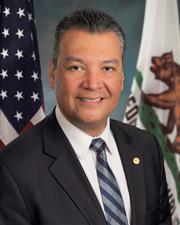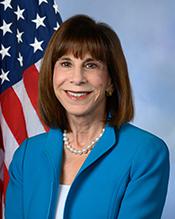S. 2694: Agriculture and National Security Act
This bill, known as the Agriculture and National Security Act, aims to enhance the connections and coordination between the Department of Agriculture and national security agencies in the United States. Here are the key provisions and goals of the legislation:
Establishment of a New Government Position
The bill requires the establishment of a new position within the Department of Agriculture called the Assistant Secretary for National Security. This position will be created within 180 days of the bill's enactment, with the Secretary of Agriculture appointing someone to this role. The Assistant Secretary will play a crucial part in advising the Secretary on national security matters related to food and agriculture.
Duties of the Assistant Secretary
The Assistant Secretary for National Security will have several responsibilities:
- Act as the principal advisor to the Secretary on national security issues.
- Serve as the primary liaison between the Department of Agriculture and national security agencies, such as the National Security Council.
- Coordinate national security activities within the Department, including engagement with various oversight bodies and laws related to agricultural security.
- Work with stakeholders to identify vulnerabilities and risks to national security that pertain to the food and agricultural sectors, especially concerning emerging technologies and cybersecurity.
Interagency Coordination
The Assistant Secretary will be authorized to work with personnel from defense, national security, law enforcement, and intelligence agencies. This includes sharing information and addressing vulnerabilities in food and agriculture, thereby improving collaboration on these important issues.
Biennial Reports
The bill mandates that the Secretary of Agriculture submit biennial reports (every two years) to Congress and the National Security Council. These reports will contain:
- An assessment of national security vulnerabilities related to food and agriculture.
- Actions taken to address any identified gaps or limitations.
- Policy recommendations, including potential reforms and resources needed to address these vulnerabilities.
Scope of Vulnerabilities Addressed
The report is intended to cover various vulnerabilities, including:
- Influence from foreign state-owned enterprises.
- Control over and access to agricultural data.
- Foreign acquisition of agricultural assets and technology.
- Shortages of agricultural inputs sourced from other countries.
- Disruptions in supply chains and trade.
- Cybersecurity threats, particularly from emerging technologies such as artificial intelligence.
Overall Goals
The overarching goal of the Agriculture and National Security Act is to improve the resilience and security of the agricultural sector by ensuring that national security concerns are adequately addressed. The bill aims to mitigate risks that could affect food supply and agricultural production in the United States.
Relevant Companies
- ADM - Archer Daniels Midland Company: A major player in agricultural commodities, its operations may be affected by changes in agricultural regulations and national security strategies concerning food supply.
- CNC - Centene Corporation: Although primarily a healthcare company, its ties to agricultural health and safety protocols may bring it into discussion regarding food security and public health.
- MONS - Monsanto (a subsidiary of Bayer AG): Involved in agriculture technology, particularly biotechnology, which might be increasingly regulated and monitored under national security concerns.
This is an AI-generated summary of the bill text. There may be mistakes.
Sponsors
2 bill sponsors
Actions
2 actions
| Date | Action |
|---|---|
| Sep. 03, 2025 | Introduced in Senate |
| Sep. 03, 2025 | Read twice and referred to the Committee on Agriculture, Nutrition, and Forestry. |
Corporate Lobbying
0 companies lobbying
None found.
* Note that there can be significant delays in lobbying disclosures, and our data may be incomplete.










